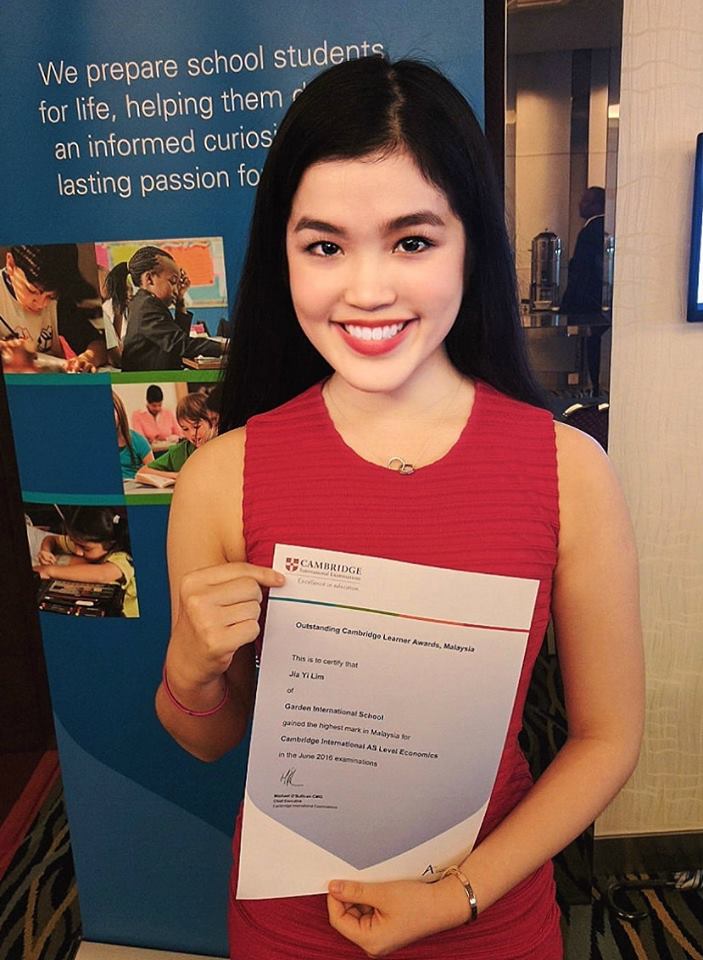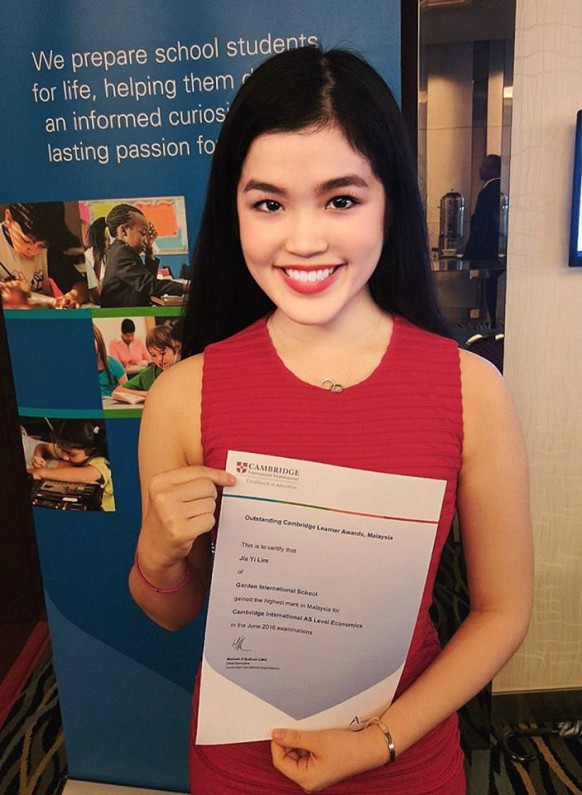School Advisor's exclusive interview with the girl who got accepted into 3 world-recognised university
Published by SchoolAdvisor | May 29, 2017Getting an offer to study in a world-recognised university is a dream come true for high school graduates. So, when Lim Jia Yi from Garden International Schoolreceived three offers from Harvard, Stanford and Trinity College at the University of Cambridge, she was overjoyed.
Here's what she exclusively told SchoolAdvisor.my
Read:Malaysian Student from Garden International School is Accepted to World's Top Universities.

Lim Jia Yi was offered a place in 3 of the world’s top universities
How does it feel to get accepted into Harvard, Stanford and Trinity College at the University of Cambridge? Your parents must be so proud!
I was incredibly surprised and ecstatic with the acceptances.The experience was very surreal and I had to reread the letters three times before the news finally sank in. Harvard, Stanford and the University of Cambridge have always been my dream schools due to their very strong research emphasis in the courses they teach.
Given the extremely low admission rates for these top Universities, especially for applicants from Malaysia, I was hoping that I would be accepted by just one of these Universities. So after I received my first acceptance letter in December last year, which was from Harvard, I immediately stopped my application effort. By then I had completed my UK applications and only Harvard and Stanford to the US. Being accepted by these three top universities in the world was way beyond what I could have possibly imagined.
Have you decided on which college you’ll attend?
I will be making my final decision after my A-levels results.
What did you focus on in your college application essay?
The main theme which resonated throughout my college application essays was my passion for using my education to solve social problems, which is very reflective of what I plan to pursue in the future.
In what way did GIS 'bring out the best in you' and consequently lead you to your outstanding achievements?
I think that the most defining factor of GIS is the quality of teaching at this institution.
The teachers in GIS are very knowledgeable and passionate about their subjects. And this passion translates into a culture of academic excellence among students. For example, in most of my lessons, I am constantly probed to question and think at a higher academic level-sometimes even beyond the syllabus. As a result of this engaging and interactive learning experience, my critical and abstract thinking skills were greatly honed.
You are very passionate about learning and applying your knowledge and skills in life. Through your tertiary education, how do you aspire to bring about change in the local community?
As I plan to major in Economics and Sociology, and possibly take courses in Statistics, Physics and Technology, I want to learn how societies and economies are affected by the deep impact of the technology revolution on the labour force ie. Big Data, Artificial Intelligence and Virtual Reality.
I hope to study the social implications of disruptive technology in the US or the UK and learn how to use public policy to counter such changes.
What do you aspire to be when you grow up?
In the future, I hope to be involved in policy-making. Though I am still open as to how I will enter policy making, I do know that my passion is to use my education to improve the lives of all Malaysians.
To the students out there who want to go to these top universities, what would your advice be? What should they start doing?
To other students with dreams of applying to these universities, my biggest advice is to try no matter how impossible it may seem. For me, my elder brother, Jiang An, has always been a big inspiration. Last year, he managed to gain admission into the University of Cambridge for Medicine, which admits only 3-5 Malaysians each year. So, his admission was a big encouragement for me to try to apply to my dream universities as well.
My second advice is to realise that age is not a barrier. In fact, some of my greatest learning experiences came from competing above my age group. When I was 15, I signed up for a national public speaking competition with an age cap for 17-20 years old. I was the youngest in the competition, but it didn’t matter as I learned so much, substantively and stylistically, from older varsity-level public speakers. Much to my surprise, I made it all the way to the national finals.
Through this experience, I learned to always seize the opportunity to learn, no matter what boundaries I faced.
So, don’t limit yourself to your age; you should always try to stretch and challenge yourself.
Recent Articles
- The Ideal School for a Holistic, Well-Rounded Education: Maple Leaf Kingsley International School
- From GIS to Charterhouse to SOAS: Zeeshan Fatmi’s Academic Expedition
- Beaconhouse Gasing Preschool: Leading Transformation with IEYC Curriculum Introduction
- BSKL and Charterhouse Grad Scores Dream Spot at New York University
- Leannie Liew’s Journey at Cempaka International School: Pushing Boundaries and Discovering Potential







 Login with Google
Login with Google